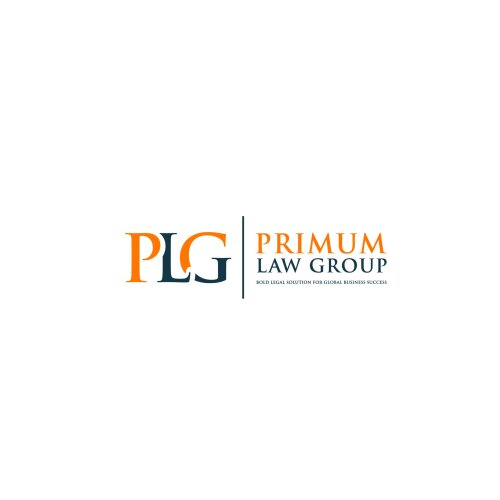Best Information Technology Lawyers in United States
Share your needs with us, get contacted by law firms.
Free. Takes 2 min.
Or refine your search by selecting a city:
List of the best lawyers in United States
About Information Technology Law in United States
Information Technology (IT) law in the United States encompasses a wide range of legal issues related to the use, development, and dissemination of information. This area of law covers topics such as software development, data protection, cybersecurity, e-commerce, intellectual property, and telecommunications. As the IT industry evolves rapidly, these laws continuously adapt to address new challenges and innovations. The legal landscape is heavily influenced by both federal and state laws, which aim to protect consumer rights, ensure data security, and promote fair business practices.
Why You May Need a Lawyer
There are several scenarios in which individuals or businesses may require legal assistance in the field of Information Technology:
- Intellectual Property Disputes: When there are disagreements regarding software patents, copyrights, or trademarks.
- Data Breaches: If experiencing a data breach, businesses may need a legal expert for compliance and to mitigate risk.
- Contract Negotiations: Legal help can ensure that terms in IT service agreements, licensing, or employment contracts are favorable and clear.
- Compliance Issues: Companies need to abide by regulations such as GDPR, CCPA, or HIPAA; lawyers can guide adherence and avoid penalties.
- Cybersecurity Measures: Implementing robust cybersecurity policies may require legal consultation to ensure they meet industry standards.
Local Laws Overview
The U.S. legal framework for Information Technology includes various federal and state laws. Key aspects include:
- Federal Laws: Laws like the Computer Fraud and Abuse Act (CFAA), the CAN-SPAM Act, and the Electronic Communications Privacy Act (ECPA) govern activities from hacking to email marketing and electronic communications privacy.
- Data Protection: The California Consumer Privacy Act (CCPA) and other state-level regulations complement federal laws, providing robust consumer data protection frameworks.
- Intellectual Property: Software can be protected under copyright laws, while patents may cover innovative technologies or business methods.
- State Laws: Each state may have additional regulations specific to data security, such as those governing data breach notifications or biometrics information privacy.
Frequently Asked Questions
What is considered intellectual property in IT?
Intellectual property in IT can include software code, algorithms, designs, trademarks, and patents for technological processes or inventions.
How do data protection laws affect IT companies?
Data protection laws require IT companies to implement measures safeguarding user data and ensuring compliance with rules like GDPR or CCPA to avoid hefty fines.
What steps should a company take after a data breach?
Following a data breach, a company should secure affected systems, notify customers, consult with legal counsel, and consider reporting to relevant authorities.
Are all IT contracts legally enforceable?
Most IT contracts are enforceable if they are properly drafted, indicating clear terms and mutual agreement, provided they comply with applicable laws.
Can software developers patent their work?
Software patents are possible but challenging to obtain; they generally require demonstrating technical innovation over a mere abstract idea.
How is cybersecurity legislation evolving in the U.S.?
Cybersecurity laws are becoming stricter, with increasing requirements for companies to disclose breaches, and implement robust cybersecurity measures.
What role do federal agencies play in regulating IT?
Agencies like the Federal Trade Commission (FTC) and the Federal Communications Commission (FCC) enforce regulations around privacy, consumer protection, and fair competition.
What constitutes e-commerce law?
E-commerce laws cover transactions made online, including consumer rights, data protection, and regulations around electronic contracts and signatures.
How can companies protect themselves against cybersecurity threats?
Companies can safeguard against cyber threats by adopting comprehensive security policies, continuous monitoring, employee training, and using encryption technologies.
Is there legal recourse for online defamation?
Yes, victims of online defamation can pursue legal action under state defamation laws or seek a court order for content removal with proper evidence.
Additional Resources
For those seeking further information or legal assistance in IT law, these resources and organizations can be valuable:
- The American Bar Association's Section of Science and Technology Law
- The Electronic Frontier Foundation (EFF)
- The Federal Communications Commission (FCC)
- The U.S. Patent and Trademark Office (USPTO)
- The International Association of Privacy Professionals (IAPP)
Next Steps
If you require legal assistance in Information Technology, consider these steps:
- Assess your specific needs: Determine the exact nature of your legal issue, whether it is related to intellectual property, data security, contract disputes, etc.
- Research qualified attorneys: Look for lawyers who specialize in IT law and have a proven track record in handling similar cases.
- Consultation: Schedule a meeting with a legal professional to discuss your situation and explore potential solutions.
- Seek multiple opinions: It may be beneficial to consult with more than one lawyer to understand different perspectives and approaches.
- Document everything: Keep detailed records of all IT-related legal issues, including communications, contracts, and incidents leading to legal challenges.
Lawzana helps you find the best lawyers and law firms in United States through a curated and pre-screened list of qualified legal professionals. Our platform offers rankings and detailed profiles of attorneys and law firms, allowing you to compare based on practice areas, including Information Technology, experience, and client feedback.
Each profile includes a description of the firm's areas of practice, client reviews, team members and partners, year of establishment, spoken languages, office locations, contact information, social media presence, and any published articles or resources. Most firms on our platform speak English and are experienced in both local and international legal matters.
Get a quote from top-rated law firms in United States — quickly, securely, and without unnecessary hassle.
Disclaimer:
The information provided on this page is for general informational purposes only and does not constitute legal advice. While we strive to ensure the accuracy and relevance of the content, legal information may change over time, and interpretations of the law can vary. You should always consult with a qualified legal professional for advice specific to your situation.
We disclaim all liability for actions taken or not taken based on the content of this page. If you believe any information is incorrect or outdated, please contact us, and we will review and update it where appropriate.
Browse information technology law firms by state in United States
Refine your search by selecting a state.












